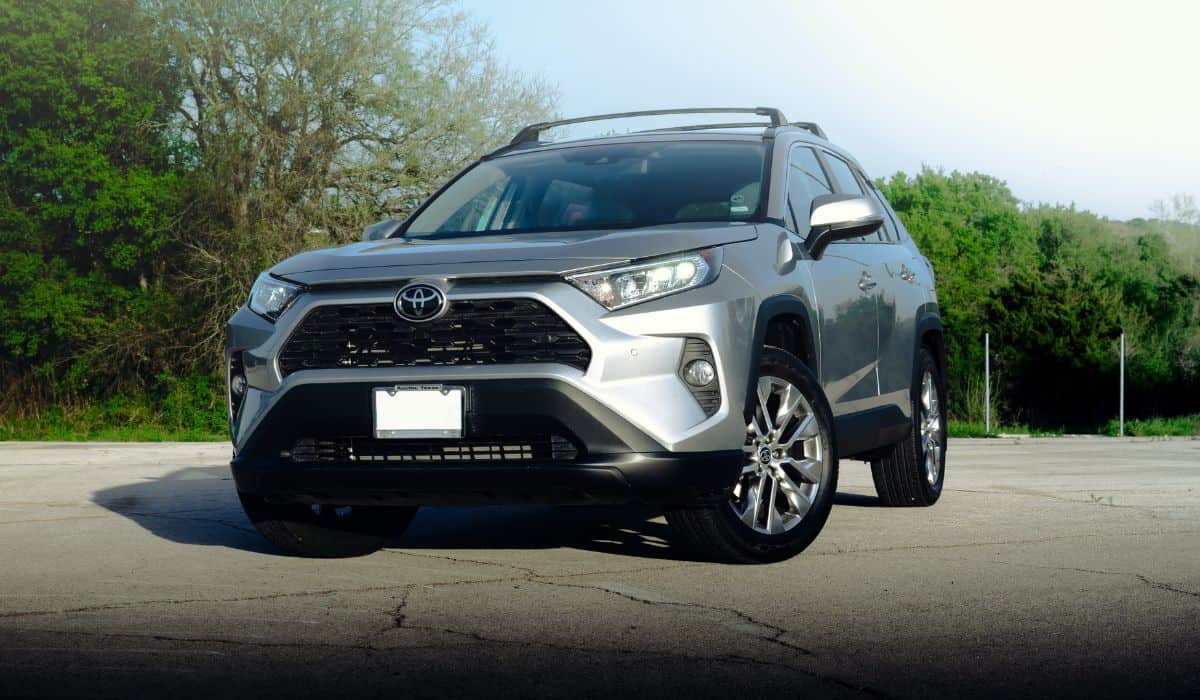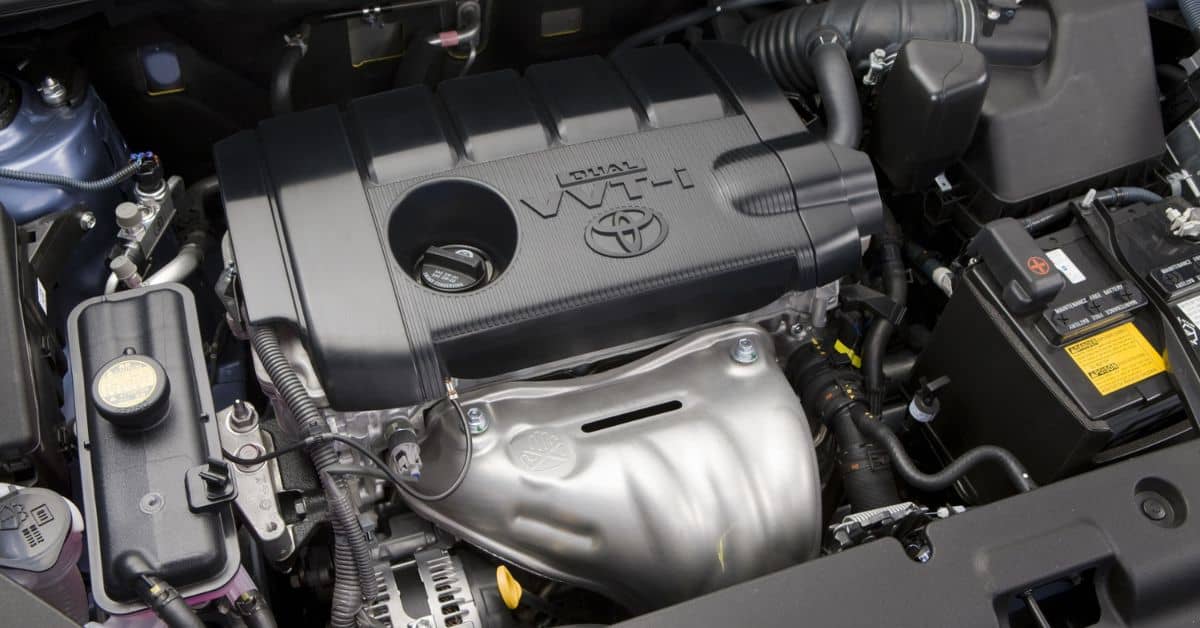Toyota RAV4 Reliability: A Review of Performance and Maintenance
As someone who has been driving a Toyota RAV4 for years, I can attest to its reputation for reliability. This compact SUV has consistently delivered a smooth ride, comfortable controls, and impressive fuel economy. But what makes the RAV4 stand out from its competitors in the crowded SUV market is its safety features and dependability.

Discover valuable insights and expert advice on Toyota RAV4 Years to Avoid in our comprehensive RAV4 category page. Explore our articles on Best Years for Toyota RAV4, Most Reliable SUV After 5 Years, RAV4 Hybrid Towing Capacity, and Toyota RAV4 Hybrid Reliability.
The 2023 RAV4 comes with a variety of standard safety features, including Toyota Safety Sense, which includes forward collision warning, automatic emergency braking, and lane departure warning. The National Highway Traffic Safety Administration also gave the RAV4 high marks for safety, earning it a 5-star overall safety rating.
Additionally, the RAV4 has a reputation for being one of the most reliable SUVs on the market, with J.D. Power giving it a dependability rating of 85 out of 100. Whether you’re driving on the highway or navigating through city streets, the RAV4 provides a sense of security and stability that is unmatched by many of its competitors.
Reliability Ratings
As I researched the Toyota RAV4, one of the most important factors I considered was its reliability. After all, no one wants to invest in a vehicle that will break down frequently or require expensive repairs. Here is what I found regarding reliability ratings for the RAV4.
J.D. Power Reliability Rating
J.D. Power is a well-known company that provides ratings and analyses of various products and services, including automobiles. According to J.D. Power’s 2023 Vehicle Dependability Study, the Toyota RAV4 received an overall reliability rating of 4 out of 5, which is considered “better than most.” This rating is based on surveys of thousands of vehicle owners who have owned their vehicles for three years.
In terms of specific categories, the RAV4 received the following ratings:
- Powertrain Dependability: 4 out of 5
- Body and Interior Dependability: 4 out of 5
- Feature and Accessory Dependability: 4 out of 5
Overall, the RAV4’s ratings in these categories are above average, indicating that it is a reliable vehicle.
It is worth noting that J.D. Power’s ratings are based on a three-year ownership period. However, the RAV4’s reliability may vary beyond this time frame. Additionally, it is important to keep up with regular maintenance and address any issues as soon as they arise to ensure the vehicle’s continued reliability.
In conclusion, based on J.D. Power’s 2023 Vehicle Dependability Study, the Toyota RAV4 has a strong reputation for reliability. Its overall rating of 4 out of 5 and above-average ratings in specific categories make it a dependable choice for those in the market for a new vehicle.

Safety Features
As I researched the reliability of the Toyota RAV4, I found that safety features are an important aspect of the vehicle. The RAV4 comes with a variety of safety features that provide drivers and passengers with peace of mind on the road.
Toyota Safety Sense
One of the standout safety features of the RAV4 is Toyota Safety Sense. This suite of safety technologies is designed to help drivers avoid accidents and mitigate the impact of collisions. Here are some of the features included in Toyota Safety Sense:
- Pre-Collision System with Pedestrian Detection: This system uses radar and a camera to detect potential collisions with vehicles or pedestrians. It can alert the driver and apply the brakes if necessary.
- Lane Departure Alert with Steering Assist: This system uses a camera to detect when the vehicle is drifting out of its lane. It can provide an audible and visual alert to the driver and even apply steering assist to help keep the vehicle centered in its lane.
- Automatic High Beams: This feature uses a camera to detect oncoming vehicles and automatically switches between high and low beams to avoid blinding other drivers.
- Dynamic Radar Cruise Control: This system uses radar to maintain a safe distance between the RAV4 and the vehicle in front of it. It can automatically adjust the speed of the vehicle to maintain a safe following distance.
Overall, Toyota Safety Sense provides drivers with a suite of safety technologies that can help prevent accidents and mitigate the impact of collisions.
Engine and Transmission
Hybrid Powertrain
I have found that the hybrid powertrain of the Toyota RAV4 is one of its strongest features. The RAV4 Hybrid has a 2.5-liter four-cylinder engine that is paired with two electric motors. The electric motors work in tandem with the gasoline engine to produce a combined output of 219 horsepower. This powertrain is smooth and responsive, and provides plenty of power for everyday driving.
The RAV4 Hybrid also has an electronically controlled continuously variable transmission (CVT), which helps to optimize fuel efficiency. This transmission provides smooth and seamless acceleration, and helps to keep the engine operating at its most efficient level.
Related Article: Common RAV4 V6 Problems

Fuel Economy
When it comes to fuel economy, the RAV4 Hybrid is a standout performer. It has an EPA-estimated fuel economy rating of 41 mpg in the city and 38 mpg on the highway. This is significantly better than the non-hybrid RAV4, which has an EPA-estimated fuel economy rating of 28 mpg in the city and 35 mpg on the highway.
The RAV4 Hybrid achieves this impressive fuel economy by utilizing a variety of fuel-saving technologies, including regenerative braking, which captures energy during braking and uses it to recharge the battery. The RAV4 Hybrid also has an automatic start-stop system, which shuts off the engine when the vehicle is stopped to save fuel.
Overall, I believe that the RAV4’s hybrid powertrain is a great choice for those who want a reliable and fuel-efficient vehicle.
Handling and Suspension
As I tested the Toyota RAV4, I found that it has good handling and suspension. It is a comfortable and smooth ride for both city and highway driving. The RAV4 has a responsive steering system that makes it easy to maneuver around tight corners and curves.
All-Wheel Drive
The RAV4 comes with an all-wheel drive (AWD) system that provides better traction and stability on slippery roads. The AWD system is available on all trims and comes standard on the Adventure and Limited trims. The RAV4’s AWD system is efficient and helps the vehicle maintain its grip on the road.
Sport Trim
The RAV4 Sport trim has a sport-tuned suspension that provides a more engaging driving experience. The suspension is stiffer than the base model, which results in better handling and cornering. However, this stiffer suspension also means that the ride can be a bit rougher.
Adventure Trim
The Adventure trim comes with a unique suspension system that provides a higher ground clearance. This feature makes it easier to drive on rough terrain and tackle obstacles like rocks and tree branches. The Adventure trim also has a Multi-Terrain Select system that allows the driver to choose the best driving mode for the terrain they are driving on.
Overall, the RAV4’s handling and suspension are impressive. The AWD system, sport-tuned suspension, and unique suspension system on the Adventure trim make it a versatile vehicle that can handle a variety of driving conditions.

Interior Features
Comfort and Convenience
As I tested the Toyota RAV4, I found the cabin is comfortable and spacious, providing ample headroom and legroom for front and rear-seat passengers.
The XLE trim level has a power-adjustable driver’s seat, lumbar support, and a sunroof, enhancing the driving experience. The rear seat is also comfortable and spacious, making it easy to accommodate passengers of all sizes.
The controls are well-placed and easy to use, with knobs and buttons that are intuitive and user-friendly. The cruise control and eco mode help to improve fuel efficiency, while the quality of the materials used in the cabin is impressive, with floor mats that are easy to clean and maintain.
Infotainment System
The RAV4’s infotainment system is impressive, with a 7-inch touchscreen display that is responsive and easy to use. The system comes with Apple CarPlay, Bluetooth, and USB ports, making connecting your phone and stream music or making calls hands-free. The navigation system is also accurate and reliable, with clear directions and easy-to-read maps.
The stereo system is also impressive, with clear and crisp sound quality that adds to the overall driving experience. The technology used in the RAV4 is cutting-edge, with a variety of safety features that help to keep you and your passengers safe on the road.
Cargo Space and Visibility
The RAV4 is a compact SUV, but it has ample cargo space, with up to 69.8 cubic feet of cargo room when the rear seats are folded down. The cargo area is also well-designed, with a low load floor and a wide opening that makes it easy to load and unload your gear.
The visibility from the driver’s seat is also impressive, with large windows and a well-designed cabin that provides excellent sightlines in all directions. The rearview camera and blind-spot monitoring system also help to improve visibility and safety on the road.
Overall, the interior features of the Toyota RAV4 are impressive, with a comfortable and spacious cabin, cutting-edge technology, and ample cargo space. The controls are user-friendly, and the infotainment system is easy to use, making it a great choice for anyone in the market for a reliable and comfortable SUV.

Recalls and Dependability
National Highway Traffic Safety Administration
As I researched the Toyota RAV4’s reliability, I found that the National Highway Traffic Safety Administration (NHTSA) has issued several recalls for various model years. These recalls include issues with the fuel pump, windshield wipers, and suspension, among others.
However, it’s important to note that these issues were promptly addressed by Toyota, and affected vehicles were repaired at no cost to the owners.
Warranty Coverage
The Toyota RAV4 comes with a limited warranty that covers the vehicle for 36 months or 36,000 miles, whichever comes first. Additionally, it has a powertrain warranty that covers the engine, transmission, and other related components for 60 months or 60,000 miles, whichever comes first.
In terms of dependability, the RAV4 has consistently ranked high in various reliability studies. According to J.D. Power’s 2021 U.S. Vehicle Dependability Study, the RAV4 ranked first in the Compact SUV segment for dependability. This is a testament to the RAV4’s reliability and Toyota’s commitment to producing high-quality vehicles.
Overall, while the RAV4 has had some recalls, Toyota has been proactive in addressing these issues and has a solid warranty program in place. The RAV4’s high dependability ratings also give me confidence in its reliability.
Model Years
2023 Toyota RAV4
As of 2023, the Toyota RAV4 has been in production for over 25 years, and it continues to be a popular choice among compact SUV buyers. The 2023 Toyota RAV4 offers a reliable and practical option for those looking for a versatile vehicle that can handle both city and off-road driving.
The 2023 Toyota RAV4 comes with a 2.5-liter four-cylinder engine that produces 203 horsepower and 184 lb-ft of torque. It is available in both front-wheel drive and all-wheel drive configurations. The RAV4 also comes with a suite of safety features, including automatic emergency braking, lane departure warning, and adaptive cruise control.
Toyota RAV4 Hybrid
The Toyota RAV4 Hybrid is a popular choice for those looking for an eco-friendly vehicle that still offers the versatility and practicality of an SUV. The hybrid model comes with a 2.5-liter four-cylinder engine and an electric motor that produces a combined 219 horsepower. It is available in both front-wheel drive and all-wheel drive configurations.
The RAV4 Hybrid also offers impressive fuel efficiency, with an EPA-estimated 41 mpg in the city and 38 mpg on the highway. It also comes with a suite of safety features, including automatic emergency braking, lane departure warning, and adaptive cruise control.
RAV4 Prime
The RAV4 Prime is the plug-in hybrid version of the RAV4, offering even more eco-friendliness and fuel efficiency. It comes with a 2.5-liter four-cylinder engine and two electric motors that produce a combined 302 horsepower. The RAV4 Prime can travel up to 42 miles on electricity alone before switching to hybrid mode.
The RAV4 Prime also comes with a suite of safety features, including automatic emergency braking, lane departure warning, and adaptive cruise control. It also offers an impressive EPA-estimated 94 MPGe and 38 mpg on gasoline only.
Overall, the Toyota RAV4 has a reputation for reliability, and the 2023 model year continues to build on that reputation with its practicality, safety features, and fuel efficiency.
Related RAV4 Articles
If you found this article helpful, be sure to review these additional RAV4 articles! This is just a small portion of the articles we have here on fourwheeltrends.com related to the Toyota RAV4. It’s one of our favorite vehicles for a good reason!
Competitors
When considering the reliability of the Toyota RAV4, it’s important to compare it to other vehicles in its class. Here are a few competitors that are worth considering:
Honda CR-V

The Honda CR-V is a popular choice in the compact SUV class. It offers a comfortable ride, spacious interior, and good fuel economy. In terms of reliability, the CR-V has a strong reputation, with high scores in reliability ratings from sources like J.D. Power and Consumer Reports.
Mazda CX-5

The Mazda CX-5 is known for its sporty handling and sleek design. It also offers good fuel efficiency and a comfortable ride. In terms of reliability, the CX-5 has received high marks from sources like J.D. Power and Consumer Reports.
Nissan Rogue

The Nissan Rogue is a practical choice for those who prioritize cargo space and passenger comfort. It offers good fuel economy and a smooth ride. In terms of reliability, the Rogue has received mixed reviews, with some sources giving it high marks and others ranking it lower.
When comparing the RAV4 to these competitors, it’s important to consider factors like fuel economy, interior space, and overall driving experience. Additionally, looking at reliability ratings from multiple sources can give a more accurate picture of how these vehicles stack up against each other.
